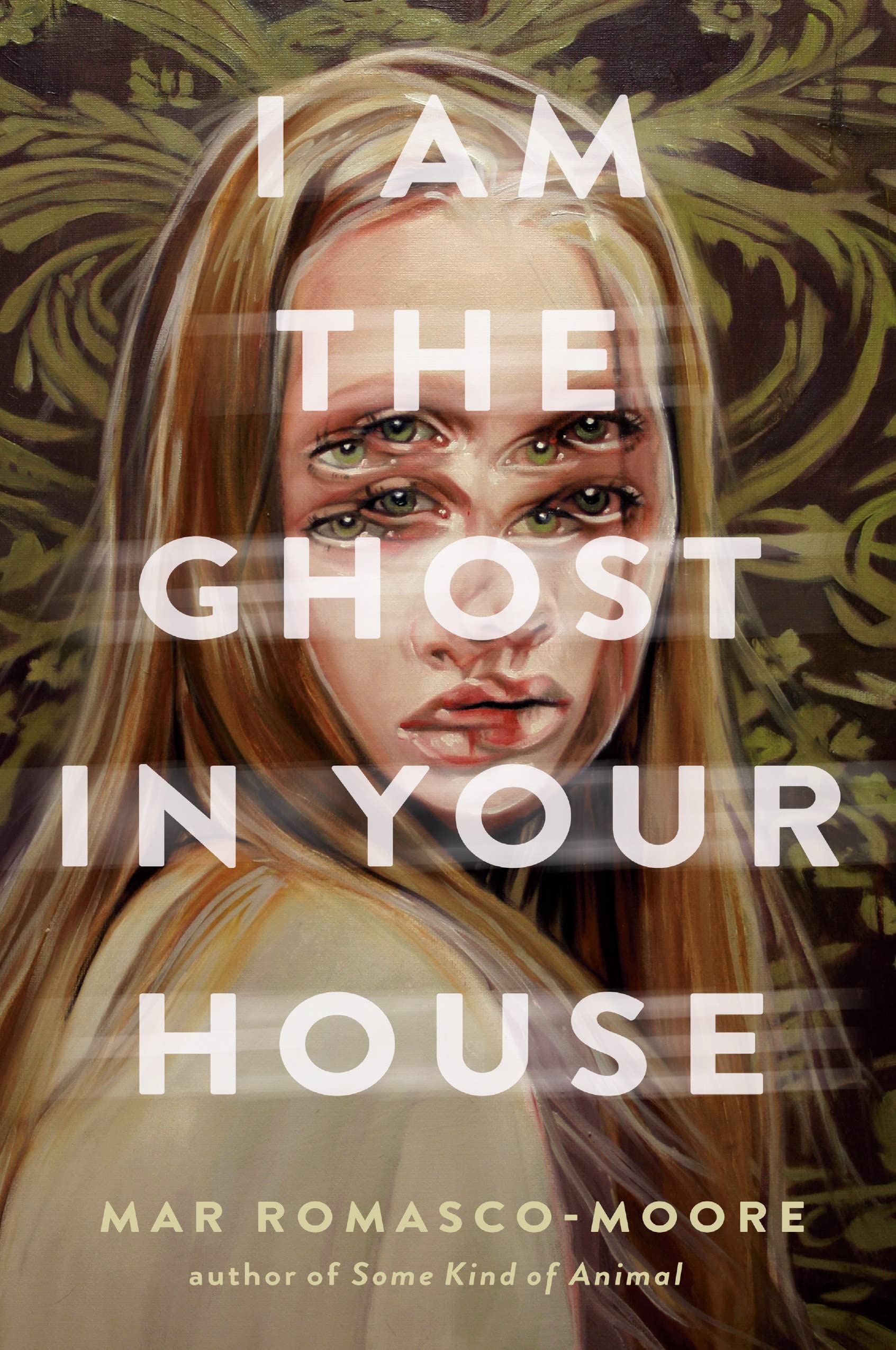I Am the Ghost in Your House
by Mar Romasco-Moore
young adult contemporary
Delacorte Press—April 2022
Do you believe in ghosts?
If you’re like me? The answer is a big, fat, emphatic NO.
While I completely believe that there’s (most likely) life outside of Earth yet to be discovered, and I love a good conspiracy theory (here’s looking at you, Mr. Kennedy)—the idea of apparitions floating around “haunting” us here on Earth seems … far-fetched. In my humble opinion, whenever someone claims to have seen a ghost, there’s almost always some sort of logical explanation for the sighting that the seer is choosing to ignore—willfully or otherwise.
So, when I was looking for a new book to spotlight for Pipeline and stumbled across I Am the Ghost in Your House, I was … skeptical. Given the ominous title, the unsettling cover, and the fact that a good majority of fiction and film/TV that centers around ghosts are of the “jump-scare” horror/thriller variety (not that there’s anything wrong with that; it’s just not my cup of tea). I was expecting Ghost to be of that oeuvre. But then I read the description, which pitched the novel as much more grounded affair—a born-invisible teenager as she comes-of-age while grappling with being in love with a girl who can’t see her.
All that in mind, I decided to give it a try. Not only did it fulfill my promise of wanting to continually review more YA books, but I was genuinely curious to see if such a concept could be sustained over the course of an entire novel.
And while I still don’t believe in ghosts (sorry to all the paranormal fanatics reading this), Ghost truly made all my doubts vanish (bum-dum-chh)—as well as completely stunning me with its heart-wrenching, emotional resonance and its transcendence of its genre.
Ghost has an incredibly simple plot—Pieta (Pie) is an invisible girl who has been living a nomadic existence with her also invisible mother. Ever since Pie was born, they’ve wandered from place-to-place, all over the United States, surviving on stolen food and sleeping wherever there was space—trains, empty houses, or even mattress stores. While Pie’s mother is content with this lifestyle, Pie has always yearned for more—for connection and acceptance with the world she inhabits, and for it to see her for who she really is: a person longing to be truly seen. And for her seventeenth birthday, Pie has a plan—return to Pittsburgh (the place where she fell in love with Tess, the girl whose home they stayed in) and do the unthinkable: reveal herself. Upon her arrival, Pie must navigate how best to reconnect with Tess, while also grappling with the reemergence of her con-man father, her mother’s failing health, and a budding relationship with two of Tess’s best friends, Jules and Denise.
Granted—the novel requires a massive “suspension of disbelief” right off the bat. Invisible people don’t exist. There are going to be readers who might have trouble with that, sure. But once you buy into the conceit? You’re left with something truly mesmerizing, a piece that deftly probes its themes—the difficulty of isolation, the psychological benefits of in-person interaction, and what it means to truly be human—which undoubtedly touched all of us during the COVID-19 pandemic. The structure of Ghost plays a massive part in this examination of the human condition, too. Throughout the novel, chapters in the present day are alternated with short vignettes of Pie describing memories of her unique upbringing. Some are luminously happy, some are tragically melancholy, and others are sharply funny. These short sections are incredibly effective at tugging on your heartstrings, while also elevating and accentuating the thematic “oompf” of plot points that came in the preceding present-day chapter.
Ghost is a “genre piece” technically, yes—but it is so much more than that. It’s an insightful critique of our society—an entity that is utterly consumed and fascinated by superficial appearance. It’s a meditation on the transformative power of love and friendship—and how without them, we are nothing more than empty, unfulfilled husks. It is thoroughly impactful, opulently rich writing that cuts itself open and bleeds onto the page—spilling its entire soul for you to see.
Moreover, I think the best way to describe Ghost is this: it makes heartache beautiful.
I know—it sounds completely and utterly counterintuitive. But trust me. When you read it, you’ll understand what I mean.
Additionally, as someone who recently moved cross-country to a new city where I only knew a handful of people, I think Ghost hit me on an extra level. While I’m (obviously) not a ghost, Pie’s desire to be “seen,” to fit into an unfamiliar world, was something thrumming through me every single time I left my apartment and walked the streets of my Brooklyn neighborhood. Furthermore, Pie felt very much like a kindred spirit, a protagonist that I knew intimately and identified with immediately—which has been the most crucial part of storytelling since the dawn of time.
And to boot? I felt truly and wholeheartedly seen. Which was … a magnificent feeling to have.
Congratulations Mar Romasco-Moore, you have an avid new fan—and I am so excited to see what you make me feel next.
Browse the books reviewed by Book Pipeline.

